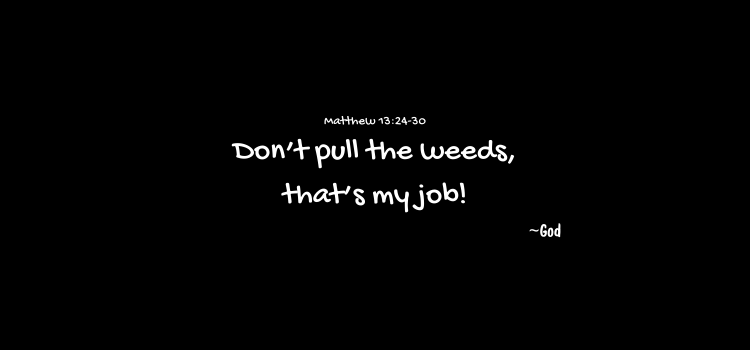Entrusting the Harvest to God: The Parable of the Weeds
 Alistair Begg, a respected pastor and host of the "Truth for Life" radio program, found himself at the center of a debate following comments he made during a promotional interview for a book last fall, which resurfaced and went viral on social media. He recounted advising a woman whose grandchild was getting married to someone who was transgender, suggesting she attend the wedding and bring a gift as a gesture of love despite her not approving of the wedding. Begg's stance is based on the belief that showing love and compassion, even in situations one may personally disagree with or disapprove of, is crucial for Christians, drawing on Jesus' command to love one's enemies and emphasizing the importance of not being judgmental or critical.
Alistair Begg, a respected pastor and host of the "Truth for Life" radio program, found himself at the center of a debate following comments he made during a promotional interview for a book last fall, which resurfaced and went viral on social media. He recounted advising a woman whose grandchild was getting married to someone who was transgender, suggesting she attend the wedding and bring a gift as a gesture of love despite her not approving of the wedding. Begg's stance is based on the belief that showing love and compassion, even in situations one may personally disagree with or disapprove of, is crucial for Christians, drawing on Jesus' command to love one's enemies and emphasizing the importance of not being judgmental or critical.
This advice sparked a backlash from some of Begg's conservative Calvinist and evangelical supporters. Begg was scheduled to speak at the Shepherds Conference, a Reformed evangelical pastors' gathering, but withdrew after discussions about the potential distraction his involvement could cause due to the controversy. His advice also led American Family Radio to drop his "Truth for Life" program from their lineup, citing the advice as unbiblical and not aligning with their expectations of adherence to Scripture.
Begg's position highlights a nuanced and deeply personal approach to engaging with LGBTQ+ individuals within the context of faith and family relationships. He advocates for a balance between adherence to one's beliefs and the imperative to show unconditional love, even when facing complex and divisive issues. This controversy reflects broader tensions within Christian communities over navigating the intersection of faith, love, and societal changes.
In light of Matthew 13:24-30, the Parable of the Wheat and the Tares, I see Begg's stance as the embodiment of the parable's lessons of coexistence and patience until the time of harvest. The parable teaches that good and evil will grow together until the end of the age when a final judgment will occur. Applying this parable from Jesus to the controversy, Begg's advice suggests a posture of patience and love towards all, trusting in God's ultimate judgment, rather than preemptively separating or condemning based on current understandings of morality and theology. This approach challenges believers to reflect on how to best represent Christ's love in a complex and divided world, even when it means navigating difficult and controversial terrains.